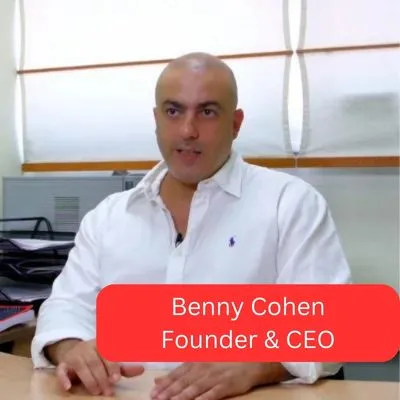The field of communication has become a central topic in the 21st century. Companies invest billions of dollars each year to improve access speed, protocols, and user experience.
The internet is currently based on the TCP/IP Suite. The integration of these protocols enables seamless communication between computers with diverse characteristics, such as different operating systems, varying hardware architectures, and distinct physical data. Despite the existence of the (IP-v6) Next Generation version for quite some time, the foundation for data transfer still relies on (IP-v4) Internet Protocol Version 4, even though the former is more efficient.
This course delves into the process of data transfer between two computers, dominant protocols in the industry: LAN, MAN, WAN, and focuses on the implementation of the TCP/IP Stack and the associated applications.
Among the topics covered in the Networking course:
- Introduction to communication networks.
- The OSI model.
- TCP/IP Stack.
- Dominant protocols in the industry: Ethernet, IPv4, IPv6, TCP, UDP.
- Network management.
- Traffic Engineering.
- Traffic Generator: Ostinato Generator.
- Sniffers and Protocols Analyzer: Wireshark Analyzer.
- Server security management features.
- Protocol implementation.
- And other significant subjects in today's industry.
During the Networking course, students will learn to implement a wide range of protocols from the TCP/IP Stack in source code on a Bare-Board development card (without an operating system).
The NETWORKING IN RT/EMBEDDED SYSTEMS course is delivered in a comprehensive manner, tailored for Embedded systems, starting from the OSI model's seven layers, passing through MPLS/PBT, communication equipment like Gateways, Switches, Routers in use in the world of Networking, and reaching wireless protocols such as 802.11 (Wireless LAN). The course is aimed at providing a thorough understanding of these concepts and their practical application in the realm of Embedded systems.
Who is the Networking course for?
- Server administrators.
- Programmers, especially those experienced in C programming, who want to enhance their code.
- Computer engineers.
- Database administrators.
- Individuals interested in understanding communication technologies.
Networking Course Prerequisites:
- Knowledge of processor architecture an advantage.
- Knowledge of embedded systems development a significant advantage.
- Background and/or experience in C programming mandatory.
- Professional knowledge interview.
The Networking course is a practical course that includes frontal lectures and hands-on exercises.
- Class exercises come with explanations, homework assignments, and solutions on the course website.
- Towards the end of the course, each student will complete a practical project that summarizes the knowledge acquired during the course.
- Lectures are held once a week in the evening or morning.













